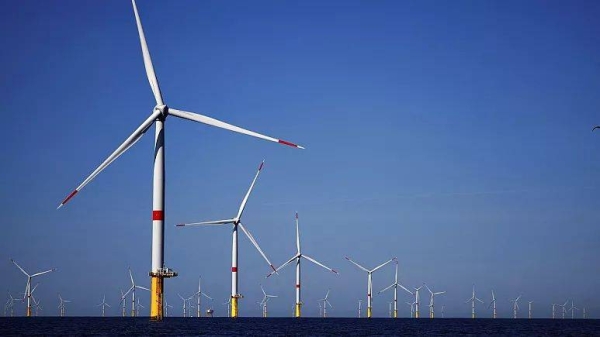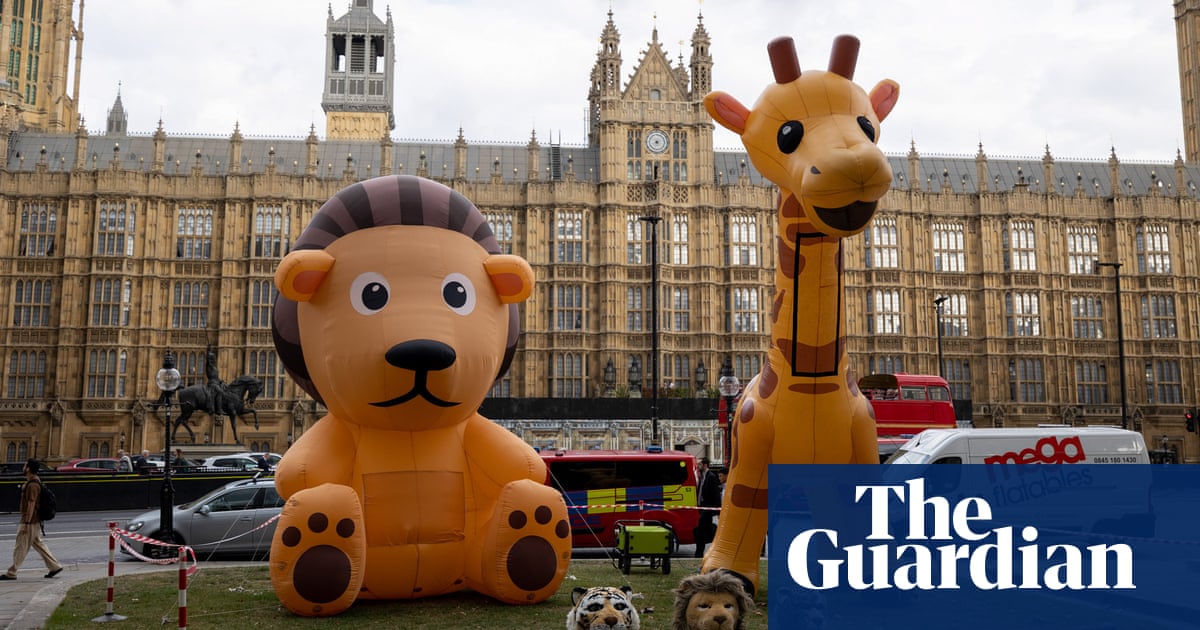
Advertising of sports utility vehicles, which emit more greenhouse gases than other cars, should be banned so the UK can meet its climate goals, a report has said.
The large increase in numbers of SUVs in the UK and around the world is the second-largest contributor to the increase in global emissions since 2010, according to the International Energy Agency.
The size, weight and drag of SUVs means they consume more fuel and emit more carbon dioxide than the average car. But manufacturers are spending millions advertising the vehicles and increasing their share of the UK car market, according to the report by the New Weather Institute thinktank and climate charity Possible.
In the UK last year more than 150,000 new cars sold were over 4.8 metres long, too large to fit in a standard parking space.
SUVs make up more than 40% of new cars sold in the UK – while fully electric vehicles account for less than 2%. Globally, there are more than 200m SUVs, an increase of 35m in 2010, accounting for 60% of the increase in the global car fleet since 2010.
The report, Upselling Smoke, found the global trend of rapidly increasing sales of bigger and more polluting SUVs was jeopardising climate goals.
It calls for a tobacco-style advertising ban on cars with average emissions of more than 160gCO2/km, and any cars exceeding 4.8 metres in length. This would cover the dirtiest third of cars sold in the UK, the report says.
Andrew Simms, co-director of the New Weather Institute, said: “We ended tobacco advertising when we understood the threat from smoking to public health.
“Now that we know the human health and climate damage done by car pollution, it’s time to stop adverts making the problem worse. In a pandemic-prone world, people need clean air and more space on town and city streets.” He said adverts promoting the biggest and worst emitting SUVs were in effect “upselling pollution”.
The report says the money spent on advertising by car companies – £1.2bn in the UK last year and $35.5bn (£26.6bn) across the world – is increasingly focused on pushing SUV vehicles. In the two years from September 2016 to 2018, Ford went from a roughly 50/50 split in its US advertising spend between cars and SUVs/pickup trucks, to allocating 85% of its ad spend to the latter.
The report draws parallels between smoking and SUVs: “Tobacco causes damage to the consumers, and tobacco companies benefit from the way that they hook their most loyal customers … SUVs are marketed as providing protection for drivers, [but] their physical size, weight and pollution levels create a more dangerous and toxic urban environment for both drivers and pedestrians.”
The UK has committed to a target of reaching net zero emissions by 2050.
Government plans for CO2 emissions standards for new cars in the UK after Brexit have been designed to align closely with those of the EU, which commit manufacturers to delivering a 37.5% reduction in CO2/km by 2030.
But the report says the rise in SUV sales is jeopardising the climate goals.
“The UK government’s plan for reaching net zero emissions relies on British drivers quickly switching away from buying traditional petrol and diesel cars to cleaner electric vehicles instead.
“That is now starting to happen, but there’s a problem: we’ve been switching to buying SUVs even faster, and as a result the average carbon emissions of a new car sold in the UK have been going up instead of down for the past four years.”
The report says ending advertising for very high-carbon vehicles will remove a driver behind their growing market share. The move would also force manufacturers to concentrate their advertising spend on smaller, more fuel efficient cars and fully electric versions of higher-end models, it says.
The UK Energy Research Centre said meeting UK climate commitments meant immediate action was needed to counter the rapid increase in sales of larger cars.
Robbie Gillett, a campaigner at Possible, said: “Whilst millions of us are trying to reduce our carbon footprints to tackle the climate crisis, we have a multibillion-pound car and advertising industry aggressively marketing highly polluting vehicles – many of which are literally too big for UK streets.
“Their misleading ads promise us freedom and escape – but the reality of urban road conditions is grinding traffic jams, toxic air pollution and spiralling carbon emissions from road transport that will trash our climate goals. Let’s create space to breathe and space to think – free from the advertising pressures of big polluters.”












